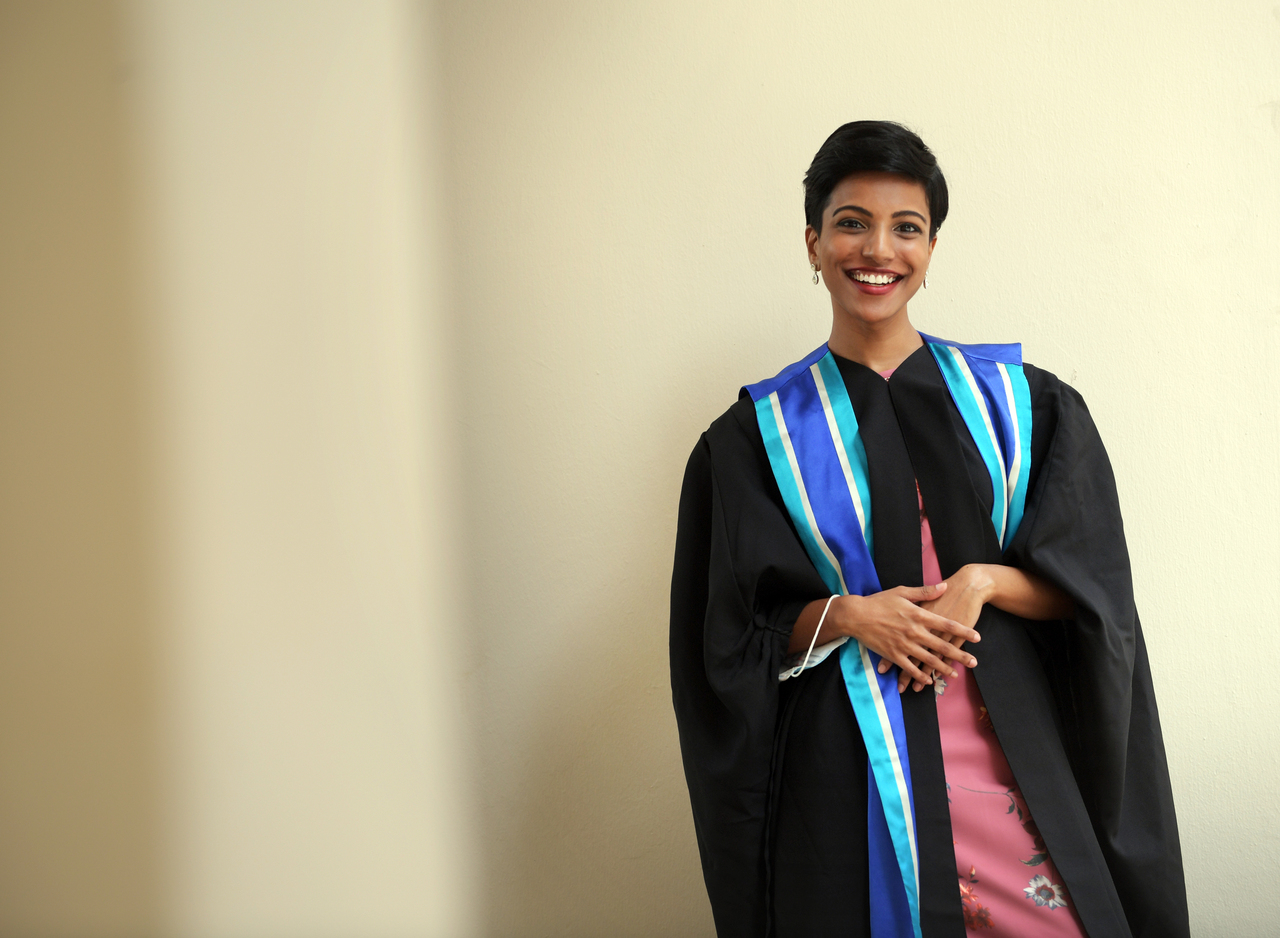59 special needs teachers graduate from Dyslexia Association of Singapore Academy
Sign up now: Get ST's newsletters delivered to your inbox

Ms Aisha Shaik was the valedictorian for her 10-month course, a specialist diploma in educational therapy.
ST PHOTO: ALPHONSUS CHERN
SINGAPORE - In the five years she worked as a freelance drama educator, Ms Aisha Shaik often came across students with learning difficulties, who would struggle to read or participate in her class.
Her teaching experience piqued her interest in educating students outside the mainstream schools, and prompted her to take up a specialist diploma in educational therapy last year.
On Wednesday (Sept 16), Ms Aisha, 27, was one of 59 newly minted special needs educators to graduate from the Dyslexia Association of Singapore (DAS) Academy.
The ceremony for this batch of students - the seventh to graduate from the academy - was held online for the first time.
The school, which is marking its 10th year, has trained more than 500 graduates in masters and diploma programmes in the last decade.
Ms Aisha, who was this year's valedictorian for her course, said the 10-month course taught her how to follow a structured method of teaching. She also learnt how to include a focus on phonics in her teaching.
Strategies such as regularly reviewing what has been taught and conducting listening or reading comprehensions at the end of class are among the things she learnt during the course.
She said: "One of the more memorable moments in the classroom was when I was trying to teach a student how to say the word 'gorilla', but she said 'Godzilla' instead.
"We have our silly moments but I am glad to see students building their confidence. And I always reassure them that their learning difference is something they are learning to cope with, and that it's okay."
The DAS Academy is the training arm of social service agency DAS, which provides services and support for people with dyslexia and other specific learning difficulties in Singapore and around the world.
Some graduates from the academy join DAS as educational therapists, while others return to their own educational institutions after completing their course.
DAS, in a statement on Wednesday, said an estimated 23,000 students from pre-school to secondary school have dyslexia that is severe enough to warrant intervention in Singapore.
About half of these children may also experience learning differences such as attention deficit hyperactivity disorder, specific language impairment, dyscalculia and dyspraxia.
Dyscalculia refers to difficulties in learning mathematics, such as counting and understanding the relationship between numbers. Dyspraxia affects a person's physical coordination, which can affect a student's performance at school, for example, the ability to produce written work.
DAS Academy head June Siew, in a speech during the graduation ceremony, asked graduates to trust their skills and adapt to circumstances while classes have switched to home-based learning during the Covid-19 pandemic.
For instance, she said teachers could use Zoom backgrounds as an alternative to the traditional game of "I Spy" or give time off on screen instead of snack breaks.
She said: "In a matter of a few months, the assumption of teaching in a classroom is unpredictably overthrown. Don't doubt yourself.
"You are graduating, which means you have the knowledge and skills to teach. You just have to summon your flexibility, adaptability and resourcefulness from within. In extraordinary times like this, these traits are crucial for survival."


